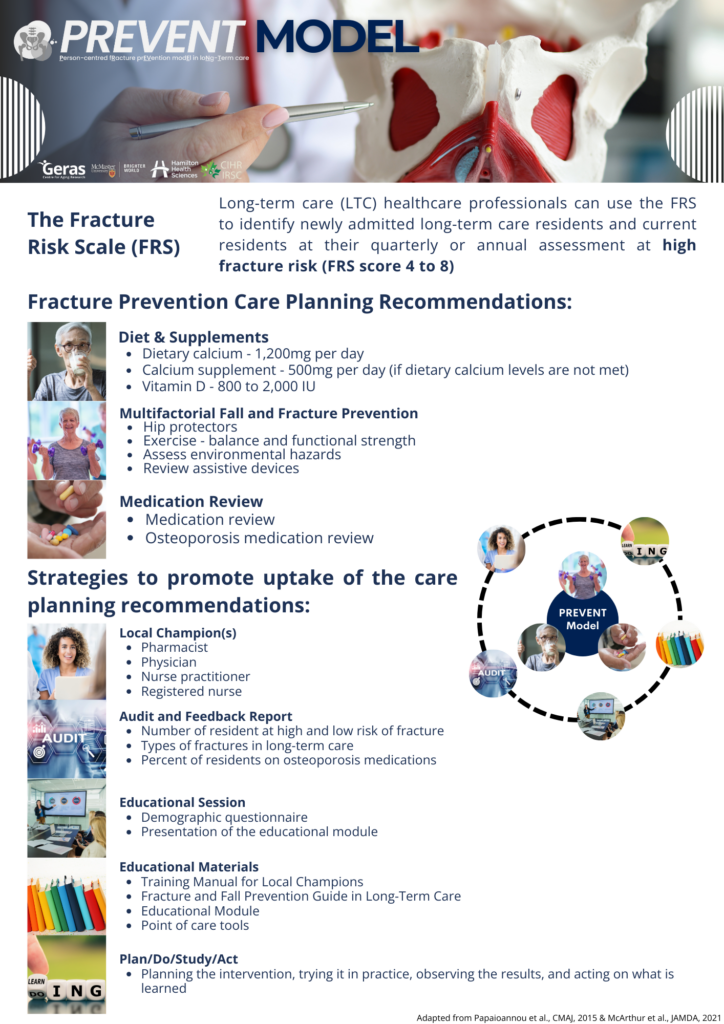Related Research
Learn more about our studies
Please contact our Geras Research Coordinator, Lauren Kane at (905) 521-2100 ext. 77866 for more information.
Overview: Hip fractures occur nearly twice as often for older adults residing in long-term care as they do in older adults of a similar age still living in other settings. Hip fractures are the leading cause of hospitalization and often result in loss of independence, problems with walking and sometimes death. To address this problem the PREVENT (Person-centered Routine Fracture PrEVENTion in Long-Term Care(LTC)) program was designed for use in long-term care homes.

PREVENT uses a tool (“fracture risk scale”) based on a residents electronic health record to capture who is most at risk of fracture due to osteoporosis and falls. The study will examine if this program is effective for decreasing hip fractures by assigning some homes to receive the PREVENT program (intervention group) and some homes to usual care (control group) and comparing the results.
| ClinicalTrials.gov Identifier: | NCT04947722 |
| Study Type: | Interventional (Clinical Trial) |
| LTC Homes (N): | 122 |
| Allocation: | Randomized |
| Intervention Model: | Parallel Assignment |
| Masking: | Double (Investigator, Outcomes Assessor) |
| Primary Purpose: | Prevention |
| Intervention Description: | A standardized PREVENT educational program will be offered to each intervention LTC home and health-care staff. The curricula includes video modules with fracture-prevention care recommendations and an orientation to the Fracture Prevention Toolkit. Using the Fracture Risk Scale (i.e., a clinical decision support tool embedded in the RAI-MDS 2.0), the LTC team will identify residents at high-risk for fracture and will implement the fracture prevention recommendations into care plans on an individual resident basis and long-term care home level. |
| Primary Outcome | Number of hip fractures
Data extracted from the Discharge Abstract Database (DAD) and National Ambulatory Care Reporting System (NACRS). Scored as occurred: yes, no. |
Funded by: CIHR
